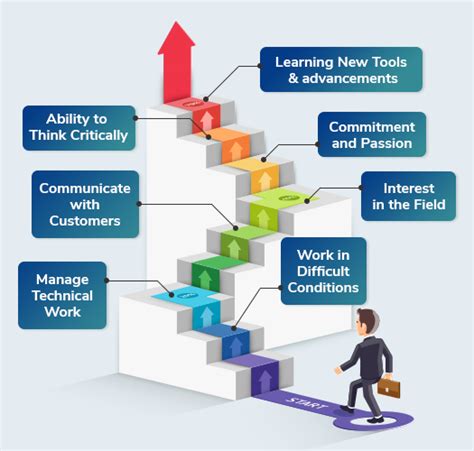Are you considering a career as a Field Applications Engineer? If so, you're likely wondering what this role entails, the skills and qualifications required, and the opportunities for growth and advancement. As a highly sought-after profession in the tech industry, Field Applications Engineers play a critical role in bridging the gap between customers, products, and companies. In this comprehensive guide, we'll delve into the world of Field Applications Engineering, exploring the ins and outs of this exciting career path.

What is a Field Applications Engineer?
A Field Applications Engineer is a technical professional responsible for supporting the sales process by providing technical expertise to customers, sales teams, and product development teams. Their primary goal is to ensure that products meet customers' needs and are effectively integrated into their systems. Field Applications Engineers work closely with customers to understand their requirements, provide product demonstrations, and offer technical support to facilitate the sales process.
Key Responsibilities of a Field Applications Engineer
As a Field Applications Engineer, your key responsibilities will include:
- Providing technical support to customers, sales teams, and product development teams
- Conducting product demonstrations and trials to showcase product capabilities
- Developing and delivering technical presentations, training sessions, and workshops
- Collaborating with cross-functional teams to resolve technical issues and improve product development
- Gathering customer feedback and market intelligence to inform product development and sales strategies
- Developing and maintaining technical documentation, such as data sheets, user manuals, and application notes
Skills and Qualifications Required
To succeed as a Field Applications Engineer, you'll need to possess a combination of technical, business, and interpersonal skills. Some of the key qualifications and skills required include:
- Bachelor's or Master's degree in a relevant field, such as electrical engineering, computer science, or physics
- Strong technical knowledge of products, systems, and technologies
- Excellent communication, presentation, and interpersonal skills
- Ability to work effectively in a team environment and build strong relationships with customers and colleagues
- Strong problem-solving and analytical skills
- Experience with product development, sales, or technical support
- Familiarity with industry-specific tools, software, and technologies
Career Path and Advancement Opportunities
As a Field Applications Engineer, you'll have opportunities to advance your career in various ways. Some potential career paths include:
- Senior Field Applications Engineer: Take on more complex technical challenges and lead teams of Field Applications Engineers
- Technical Sales Engineer: Transition into a sales role, leveraging your technical expertise to drive sales growth
- Product Manager: Oversee the development and launch of new products, working closely with cross-functional teams
- Engineering Manager: Lead teams of engineers, focusing on product development, testing, and validation
- Technical Director: Provide technical leadership and strategy, driving innovation and growth across the organization
Industry Outlook and Job Prospects
The demand for Field Applications Engineers is high, driven by the increasing complexity of products and systems. According to the Bureau of Labor Statistics, employment of sales engineers, including Field Applications Engineers, is projected to grow 4% from 2020 to 2030, faster than the average for all occupations.
Salary and Benefits
The salary range for Field Applications Engineers varies depending on factors such as location, industry, experience, and company size. However, here are some approximate salary ranges in the United States:
- Entry-level Field Applications Engineer: $60,000 - $80,000 per year
- Mid-level Field Applications Engineer: $80,000 - $110,000 per year
- Senior Field Applications Engineer: $110,000 - $140,000 per year
In addition to a competitive salary, Field Applications Engineers often receive benefits such as bonuses, stock options, health insurance, and retirement plans.
Conclusion
A career as a Field Applications Engineer offers a unique blend of technical expertise, business acumen, and interpersonal skills. If you're passionate about technology, enjoy working with customers, and are looking for a challenging and rewarding career, then this role may be an excellent fit for you. By understanding the responsibilities, skills, and qualifications required, you can set yourself up for success in this exciting and in-demand field.

Gallery of Field Applications Engineer Images






FAQs
What is the typical career path for a Field Applications Engineer?
+The typical career path for a Field Applications Engineer may include senior technical roles, sales engineering, product management, or leadership positions.
What skills are required to be a successful Field Applications Engineer?
+Successful Field Applications Engineers require strong technical knowledge, excellent communication and interpersonal skills, and the ability to work effectively in a team environment.
What is the average salary range for a Field Applications Engineer?
+The average salary range for a Field Applications Engineer varies depending on factors such as location, industry, experience, and company size, but can range from $60,000 to over $140,000 per year.
